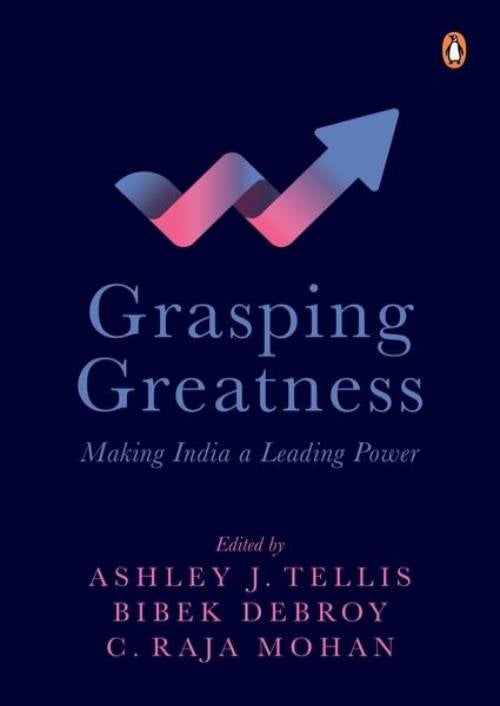
| Title: | Grasping Greatness: Making India a Leading Power |
| Author/s: | Ashley J. Tellis, Bibek Debroy, C. Raja Mohan |
| Abstract: | Since its independence in 1947, India’s leaders have sought to grasp the greatness that the country seemed destined for. India’s first prime minister, Jawaharlal Nehru, articulated these aspirations early on but, overwhelmed by development challenges, his successors focused largely on domestic concerns rather than on global leadership. The post-1991 era saw India positioned for the first time in many decades as an economic success, suggesting that it was on the cusp of breaking out as a global player.
The twenty-odd years following the 1991 reforms were heady for India. Based on the expectation that India was now poised to ascend as a major power, Prime Minister Narendra Modi-less than a year after he first took office in May 2014-expressed his desire that India assume a leading role: completing the transformation from being merely an influential entity into one whose weight and preferences are defining for international politics. |
| Date: | 30 December 2022 |
| More From: |
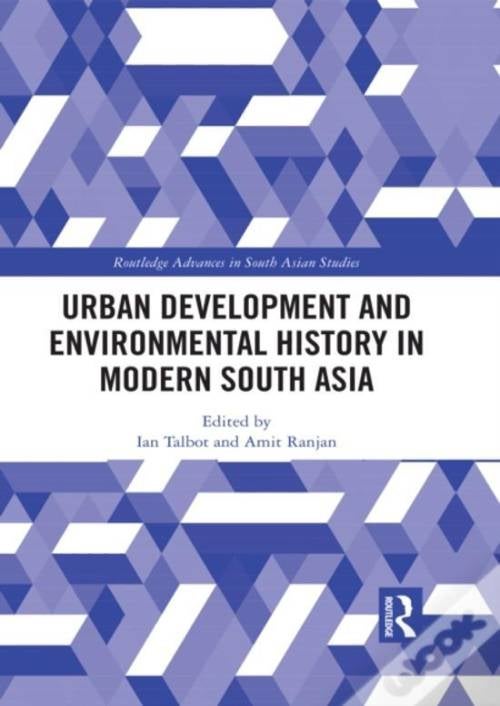
| Title: | Urban Development and Environmental History in Modern South Asia |
| Author/s: | Ian Talbot, Amit Ranjan |
| Abstract: | This book provides a pioneering study of the historical interaction between the city and the natural environment from the colonial to the contemporary era in South Asia.
The book provides a multidisciplinary analysis examining the environmental history of the city and bringing together contributions from environmental experts and practitioners as well as academics. Focusing on case studies stretching from the Maldives and Sri Lanka to the Indian subcontinent, the chapters trace linkages between the contemporary and earlier patterns of urban expansion and their environmental effects and consider lessons that can be drawn with respect to preventing future environmental degradation and mitigating the effects of climate change. An important contribution to the field, this book studies the contemporary environmental issues arising from rapid South Asian urbanization. It will be of interest to researchers in the field of South Asian studies, world history, and environmental history. |
| Date: | 4 November 2022 |
| More From: |
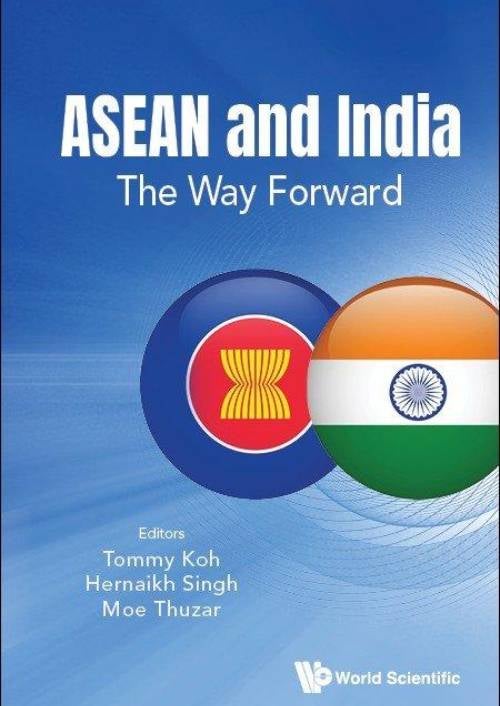
| Title: | ASEAN and India: The Way Forward |
| Author/s: | Tommy Koh, Hernaikh Singh, Moe Thuzar |
| Abstract: | India became a Sectoral Dialogue Partner of the Association of Southeast Asian Nations (ASEAN) in 1992. In 1995, India became a full Dialogue Partner. In 2002, ASEAN and India held their first Summit in Phnom Penh, Cambodia. Since then, a bilateral Summit has been held annually. India's relations with Southeast Asia date back a thousand years. There are many cultural, religious, and people-to-people linkages between India and the 10 ASEAN member states. Trade and investment ties have also grown since the opening of the Indian economy in the early 1990s. Relations are good but not optimal. ASEAN and India: The Way Forward hopes to inspire policymakers on both sides to understand the multifaceted relationship and explore ways to raise the bilateral ties to a higher peak. The book first traces the evolution of ASEAN-India relations over the centuries. It then examines the key areas of convergence and divergence between ASEAN and India. The final part explores the emerging areas where ASEAN and India can deepen their cooperation. |
| Date: | 12 October 2022 |
| More From: |
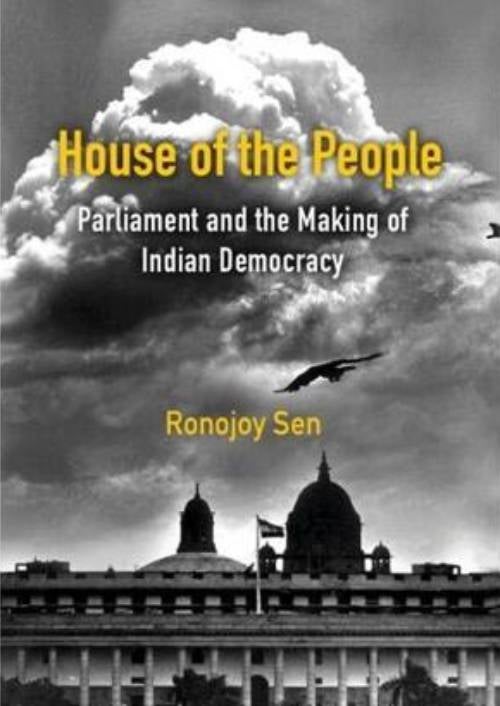
| Title: | House of the People: Parliament and the Making of Indian Democracy |
| Author/s: | Ronojoy Sen |
| Abstract: | While there is overwhelming support for democracy in India and voter turnout is higher than in many Western democracies, there are low levels of trust in political parties and elected representatives. This book is an attempt to look beyond Indian elections, which has increasingly occupied analysts and commentators. It focuses on the Lok Sabha (The House of the People), comprising 543 members directly elected for five years by a potential 800 million plus voters in 2019. The book seeks to answer two questions: Is the Indian Parliament, which has the unenviable task of representing a diverse nation of a billion-plus people, working, if not in an exemplary manner, at least reasonably well, to articulate the diverse demands of the electorate and translate them into legislation and policy? To what extent has the practice of Indian democracy transformed the institution of parliament, which was adopted from the British, and its functioning? |
| Date: | 12 October 2022 |
| More From: |
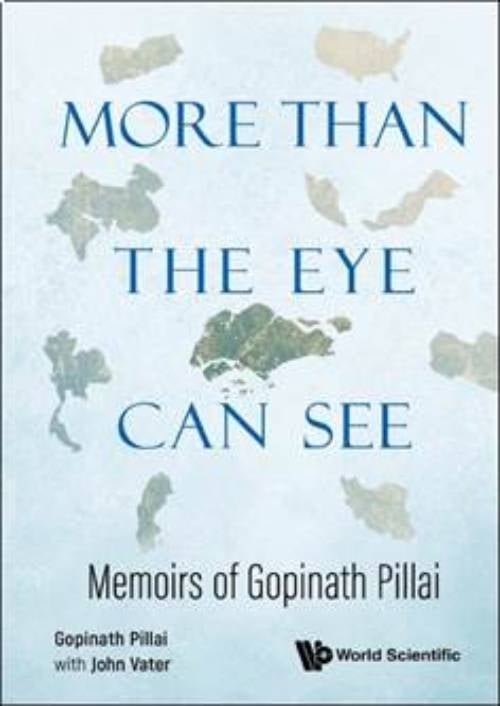
| Title: | More than the eye can see: Memoirs of Gopinath Pillai |
| Author/s: | Gopinath Pillai, John Vater |
| Abstract: | More Than The Eye Can See tells the story of Gopinath Pillai, a Singaporean businessman, and diplomat who served as Singapore's Non-Resident Ambassador to Iran (1989–2008) and High Commissioner to Pakistan (1994–2001). Alongside working with prominent members of Singapore's pioneering generation to strengthen the country's manufacturing profile and international trade during the Cold War, he broke into liberalising India as a trailblazing entrepreneur and contributed to the nation's public life as the first Chairman of NTUC Fairprice and Founder Chairman of the Institute of South Asian Studies.
A self-described "Jack of All Trades", Gopi's memoirs frame episodes of personal struggle against milestones in the progress of the nation. Born in Singapore to Malayalee parents in 1937, Gopi spent his early childhood in India throughout the Japanese Occupation, where he witnessed the Communist Movement in Kerala first-hand. When he returned to Singapore in 1946, Gopi grew up in a multi-racial society taking its fledgling steps as a democracy. His career took him all over — to Thailand and Malaysia as an economist and journalist and the Middle East and America as a manager — reflecting Singapore's early industrialisation and the pursuit of its values and interests abroad and at home. |
| Date: | 27 August 2022 |
| More From: |
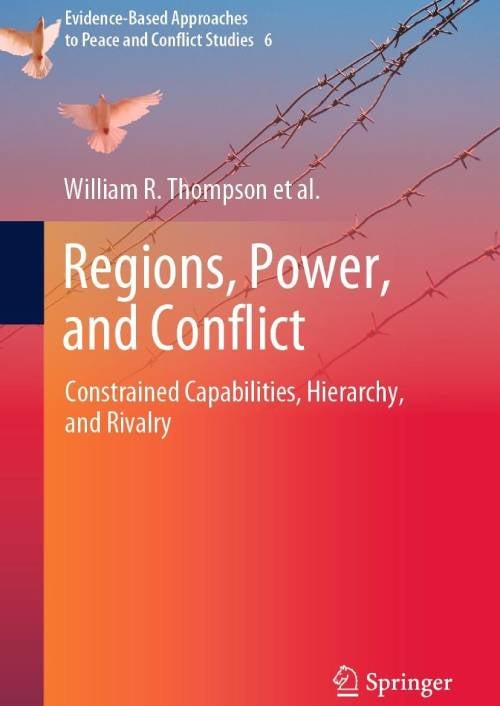
| Title: | Regions, Power and Conflict: Constrained Capabilities, Hierarchy, and Rivalry |
| Author/s: | William R Thompson, Thomas J Volgy, Paul Bezerra, Jacob Cramer, Kelly Marie Gordell, Manjeet Pardesi, Karen A Rasier, J Patrick Rhamey Jr, Kentaro Sakuwa, Rachel Van Nostrand, Leila Zakhirova |
| Abstract: | The three main levels of analysis in international relations have been the systemic, the national, and the individual. A fourth level that falls between the systemic and the national is the region. It is woefully underdeveloped in comparison to the attention afforded the other three. Yet regions tend to be distinctive theaters for international politics. Otherwise, we would not recognize that Middle Eastern interstate politics somehow does not resemble Latin American interstate politics or interstate politics in Southern Africa (although once the Middle East and Southern Africa may have seemed more similar in their mutual fixation with opposition to domestic policies in Israel and South Africa, respectively).
This book, divided into three parts, first makes a case for studying regional politics even though it must also be appreciated that regional boundaries are also hazy and not always easy to pin down empirically. The second part examines power distributions within regions as an important entry point to studying regional similarities and differences. Two emphases are stressed. One is that regional power assessments need to be conditioned by controlling for weak states which are more common in some regions than they are in others. The other emphasis is on regional power hierarchies. Some regions have strong regional hierarchies while others do not. Regions with strong hierarchies operate much differently from those without them in the sense that the former are more pacific than the latter. The third part of the book focuses on regional differences in terms of conflict behavior, order preferences, rivalries, and rivalry termination. |
| Date: | 17 August 2022 |
| More From: |
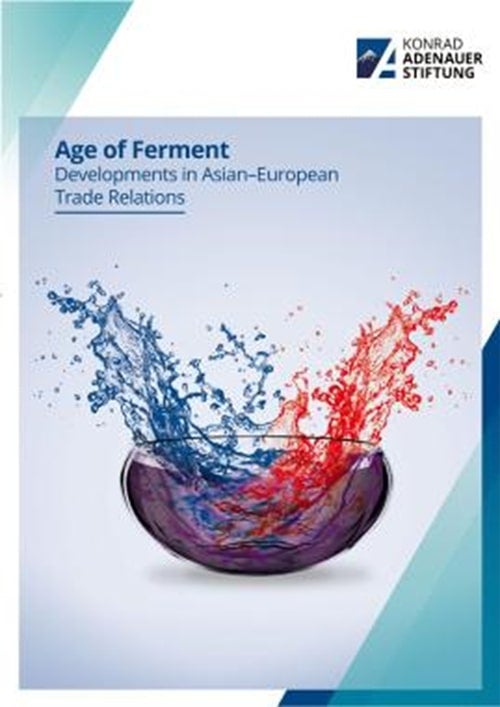
| Title: | Age of Ferment: Developments in Asia-European Trade Relations |
| Author/s: | Prof Sanjay Kathuria |
| Abstract: | The papers in this volume—Age of Ferment: Developments in Asian–European Trade Relations— examine the role of trade in facilitating recovery from the COVID-19 pandemic. The publication contains two sections. The first section deals with Asia’s global value chains' transformations in selected sectors and also provides a sketch of the region’s economic trajectory following these systemic disruptions. The second section analyses Europe’s evolving trade relations with Asia using the recent free trade and investment agreements as lenses. As trade relations become increasingly more complex, it is essential to find common ground to ensure an inclusive recovery from the ravages of the current crisis. We hope that the perspectives offered in these papers will be able to contribute to these efforts. |
| Date: | 8 June 2022 |
| More From: |
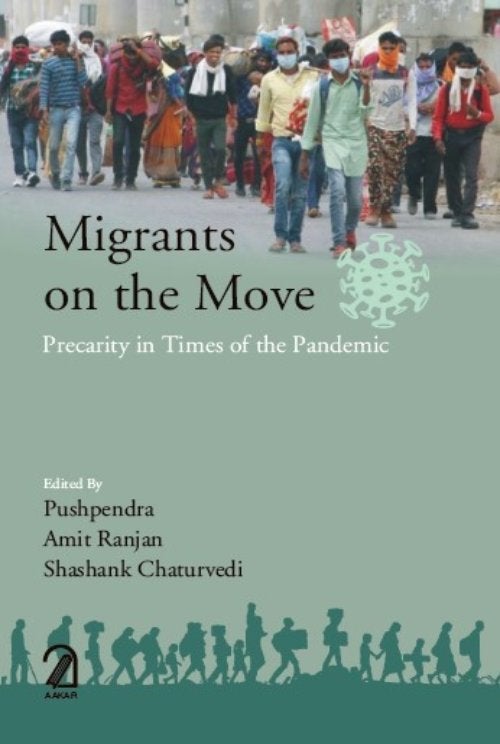
| Title: | Migrants on the Move: Precarity in Times of the Pandemic |
| Author/s: | Amit Ranjan, Pushpendra, Shashank Chaturvedi |
| Abstract: | The spectacle of the mass exodus of migrants following lockdowns during the first wave of COVID-19 in India brought to centre-stage a migrant discourse that exposed various fault lines in Indian society such as class, caste, gender, religion and ethnicity, which tended to magnify during the crisis. Moreover, the state’s failure to stand with and care for its toiling classes, particularly migrants, has intensified debate on state, democracy, citizenship, market, mobility, domicile, welfarism, urbanism, labour, foreign policy vis-à-vis overseas Indian migrants, human-pathogen relations, and right to life and livelihoods. The gradual but impending impact of the pandemic is likely to bring about far-reaching changes in the way politics functions, the triad of liberalisation, privatisation and labour reforms is exploited, urban is conceptualised, and workers’ organisations go about organising them. This book, using multi-disciplinary lenses, explores all these topics as they unfolded during the first wave of the pandemic in India and tries to bring forth the perceptive aspects of the issues discussed and debated during the pandemic. |
| Date: | 7 June 2022 |
| More From: |
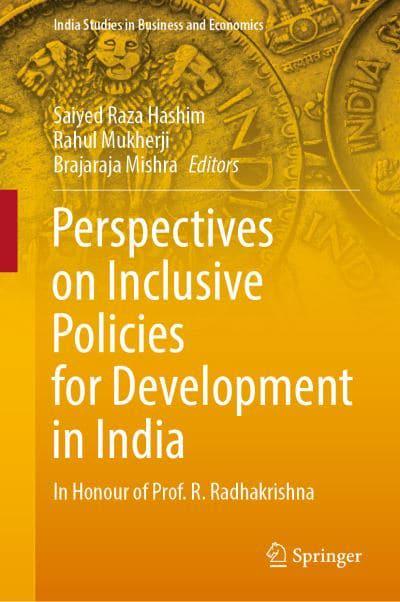
| Title: | Perspectives on Inclusive Policies for Development in India |
| Author/s: | Saiyed Raza Hashim, Rahul Mukherji, Brajaraja Mishra |
| Abstract: | This book presents perspectives by eminent economists, social scientists, and policy makers, exploring in depth the post-reform developments in India, including issues pertaining to growth and equity, issues which have been at the core of life-time work of Prof. R. Radhakrishna. The book brings out how some public policy instruments created to promote growth have turned out to be regressive, promoting inequalities and creating a highly asymmetric federalism in India. It examines the efficacy of fiscal and monetary reforms and emphasizes the need for strengthening the institutions of governance, particularly judiciary and police, to boost investors’ confidence. It presents exercises in econometric modelling for explaining factors in growth and vetting policies and explores the issue of governance and institutions. The book provides insights into the working of an emerging economy and a large democracy which has to strive for public acceptability of the tensions of its negotiations between equity and growth. With its depth of academic excellence and breadth of topics covered, it is a ‘must read’ for researchers, policy makers, industry watchers, think tanks, and NGOs. |
| Date: | 7 June 2022 |
| More From: |
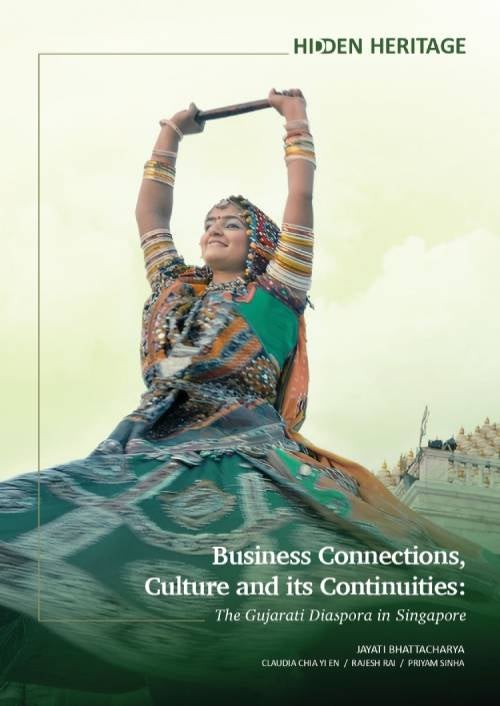
| Title: | Business Connections, Culture, and its Continuities: The Gujarati Diaspora in Singapore |
| Author/s: | Jayati Bhattacharya, Claudia Chia Yi En, Rajesh Rai, Priyam Sinha |
| Abstract: | This study analyses the migration of Gujaratis, ventures initiated by their business communities, their cultural engagements and continuities over generations in Singapore. The Gujaratis are a diverse group, linked through their ethno-linguistic roots, who constitute a minority within the Indian minority in the city-state. Their business acumen, cultural traits, food and festivities have contributed to the heritage and richness of the Indian diaspora in Singapore. A significant proportion of the Gujarati diaspora in Singapore, are descendants of immigrants who arrived during the colonial period and have a settled presence on the island for many generations. Over the last 30 years, a new layer has been added to the social fabric of the Gujarati community, as Singapore opened up to highly skilled professionals from the subcontinent, and as more Indian corporates and firms set up offices in the global city. The avenues and institutions established by the first and second generation of Gujaratis, the ‘old’ diaspora in Singapore, provided the foundation for these newcomers to adapt and partake in familiar socio-cultural events, religious practices and festivals in the new land. |
| Date: | 28 May 2022 |
| More From: |
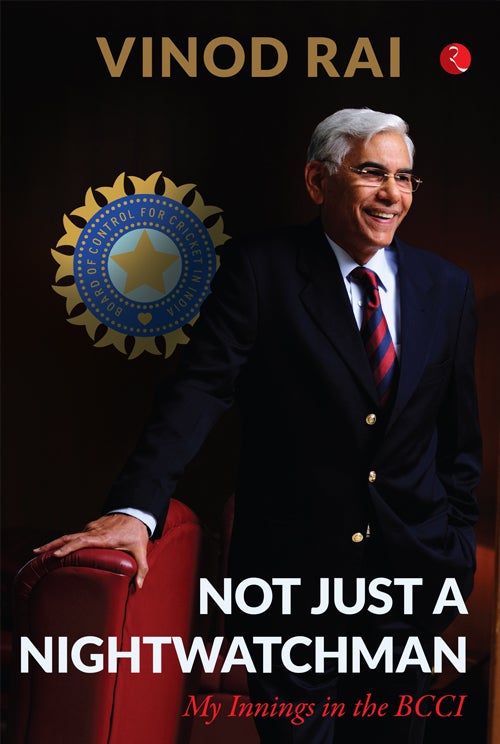
| Title: | Not Just A Nightwatchman: My Innings in the BCCI |
| Author/s: | Vinod Rai |
| Abstract: | ‘It is a great honour for me to have been chosen by the Supreme Court. I see my role in the BCCI only as a nightwatchman.’
When Vinod Rai humbly commented about his appointment as the head of the Supreme Court appointed Committee of Administrators (CoA) on national television on 30 January 2017, little did he know that he would stay at the crease for 33 months! In the next few days, the CoA came to grips with their overous responsibility – that of overseeing the administration of one of the richest sports bodies in the world, the Board of Contrrol for Cricket in India (BCCI). Notwithstanding his ardent support for the game, Rai refused to be blind to the flaws in its governance, And so the nightwatchman decided to play on the front foot; a characteristic style that he carries forward that he carries forward as he describes his innings in Not Just a Nightwatchman. |
| Date: | 5 April 2022 |
| More From: |
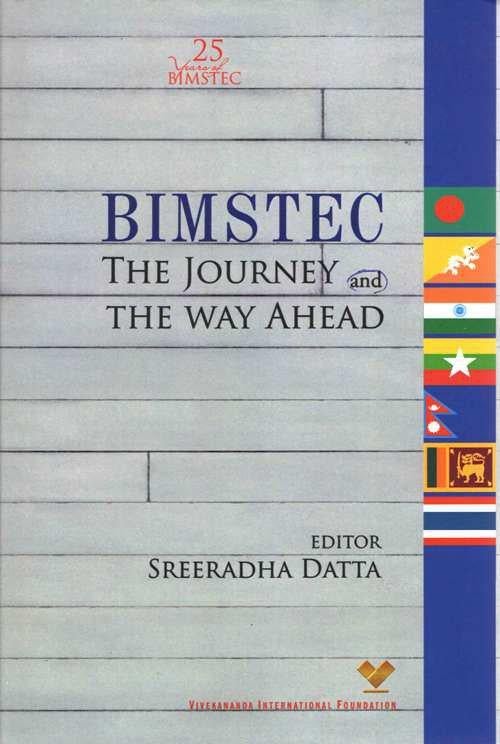
| Title: | BIMSTEC: The Journey and the Way Ahead |
| Author/s: | Sreeradha Datta |
| Abstract: | The Bay of Bengal Initiative for Multi-Sectoral Technical and Economic Cooperation (BIMSTEC) is a sub-regional organization straddling five-member states from South Asia and two from Southeast Asia. In the larger context of the global developments in the Bay of Bengal and the Indo-Pacific, BIMSTEC has taken on a more distinct salience and collaborative endeavors would prove beneficial for all the member-states. While the lack of perceived progress within BIMSTEC has introduced fatigue and doubts as well as scepticism about its goal and ability to deliver, cooperation within BIMSTEC assumes paramount importance given the present state of international cross-border permeability. The chapters in this book highlight the sectors that need focus, the aspects that require greater attention and the issues that can provide common grounds to take the journey forward. This book has six distinct sections, beginning with a broad overview of Bay of Bengal and elaborating on the rationale for the sub-regional organization. The second section on cooperative sectors includes chapters on technology and climate change and risk management mechanisms. The third section on social and cultural factors traces the roots of Buddhism and highlights issues of gender, poverty, and media. The fourth section covers the scope for signing a Free Trade Agreement, Foreign Direct Investment, and energy cooperation. The penultimate section focuses on security issues, including religious extremism and possible defense collaborations with the final section highlights the outstanding issues and the challenges that lies ahead, especially in the context of the COVID-19 pandemic. The final section summaries the salient points of all the chapters and offers specific prescriptions. |
| Date: | 28 February 2022 |
| More From: |
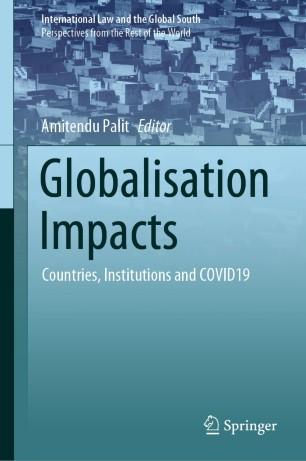
| Title: | Globalisation Impacts |
| Author/s: | Amitendu Palit |
| Abstract: | The book reviews globalisation by identifying causes behind the discontent it has produced in recent years. It variously engages in economics, political economy, development and policy discourses to study experiences ofcountries and institutions in managing and adjusting to globalisation. Extending the analysis to latest global developments, including the remarkable advance of technology and digitalisation, and political and economic upheavals caused by COVID19, the book collects varied academic perspectives and reflects on the present as well as future. Comprising chapters written by distinguished academics and policy experts, the book is a rare collection of cross- disciplinary objective evaluations of globalisation. |
| Date: | 3 January 2022 |
| More From: |
Load more


